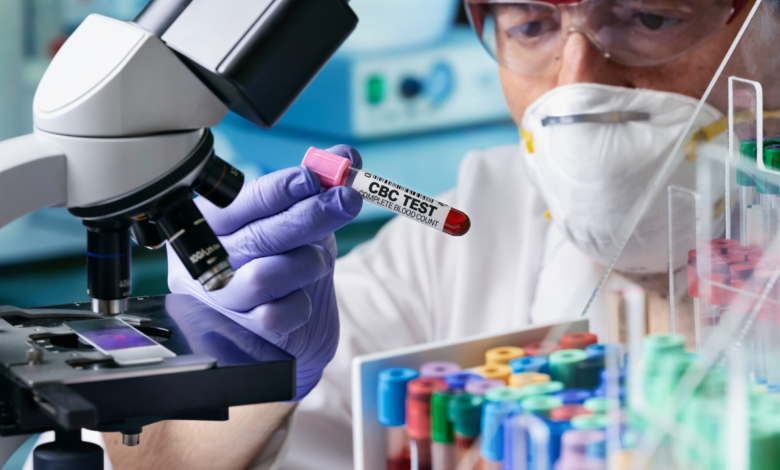Complete Blood Count (CBC)

What is Complete Blood Count (CBC)?
A complete blood count (CBC) is a common blood test that provides information about the different types of cells in your blood. It’s a valuable tool for assessing overall health and diagnosing various medical conditions.
Why Complete Blood Count (CBC) is required?
CBCs are essential for:
- Diagnosing diseases: They can help detect anemia, infections, leukemia, and other blood disorders.
- Monitoring health: Regular CBCs can monitor overall health and identify potential problems early.
- Evaluating treatment effectiveness: CBCs can track the effectiveness of treatments for various medical conditions.
which are the method of Complete Blood Count (CBC)?
Methods of CBC:
The primary method for CBC is a blood test. A healthcare provider will draw a blood sample from a vein in your arm and send it to a laboratory for analysis.
who should go for Complete Blood Count (CBC)?
Most people should have regular CBCs as part of their routine healthcare. However, certain individuals may benefit from more frequent testing, such as:
- People with a history of blood disorders or other medical conditions.
- Pregnant women.
- Individuals undergoing medical treatments that can affect blood cell counts.
What are the results of Complete Blood Count (CBC)?
Results of a CBC:
A CBC provides information about several components of your blood, including:
- Red blood cells: These cells carry oxygen throughout the body.
- White blood cells: These cells help fight infection.
- Platelets: These cells help blood clot.
- Hemoglobin: A protein in red blood cells that carries oxygen.
- Hematocrit: The percentage of red blood cells in your blood.
Abnormal results on a CBC may indicate a variety of health conditions, such as anemia, infection, or leukemia.
What are the components of Complete Blood Count (CBC)?
Components of a CBC:
- Red blood cell count (RBC): Measures the number of red blood cells.
- White blood cell count (WBC): Measures the number of white blood cells.
- Platelet count: Measures the number of platelets.
- Hemoglobin (Hgb): Measures the amount of hemoglobin in your blood.
- Hematocrit (Hct): Measures the percentage of red blood cells in your blood.
- Mean corpuscular volume (MCV): Measures the average size of red blood cells.
- Mean corpuscular hemoglobin (MCH): Measures the average amount of hemoglobin in each red blood cell.
- Mean corpuscular hemoglobin concentration (MCHC): Measures the concentration of hemoglobin in red blood cells.
- Red cell distribution width (RDW): Measures the variation in size of red blood cells.
A CBC is a valuable diagnostic tool that can provide important information about your overall health. If you have concerns about your health, it’s important to see a healthcare provider for a regular CBC.





